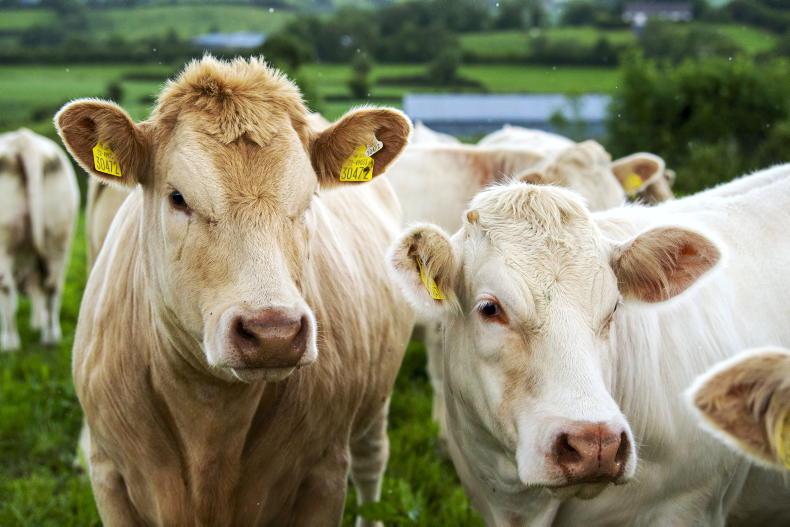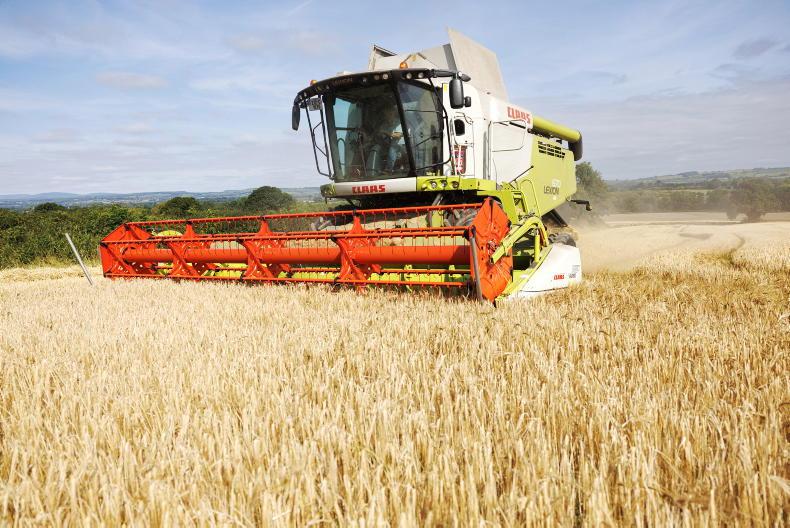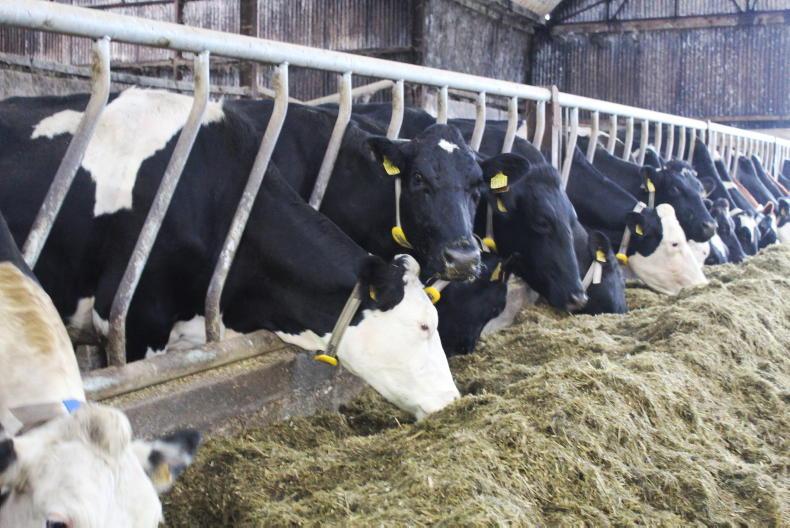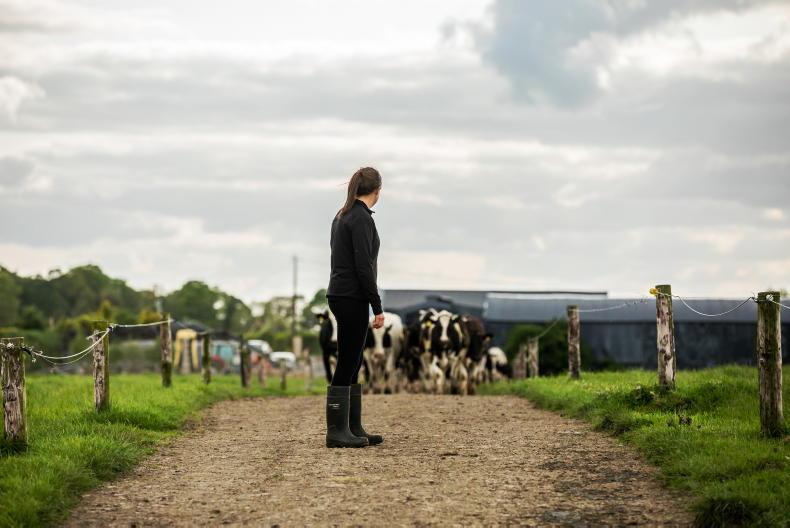It will be 2025 before there are any significant changes to direct payments in NI, and potentially 2026 before the industry transitions over fully to a new Farm Sustainability Payment, DAERA has confirmed.
On Monday, officials set out the timeline for farm support and development activity over the next few years to include various schemes and initiatives.
Much of the detail is not yet known, but fundamentally, the overall direction of travel remains that the bulk of farm support will eventually graduate away from area-based schemes, to agri-environment type payments.
How quickly this happens will potentially depend on paymasters in the British Treasury (current funding is guaranteed to the end of the 2024-2025 financial year) and also the appetite among farmers for these new agri-environment schemes.
Beef schemes
The basis for DAERA’s policy development activity remains the 54 decisions announced by former Agriculture Minister, Edwin Poots, in 2022, which followed on from an industry-wide consultation opened in late 2021.
Those decisions included plans to set aside up to 17% of direct payments (approximately £50m) to fund a new beef sustainability package of measures to help improve efficiency, profitability and environmental performance of the sector.
The first measure is a beef carbon reduction scheme, due to open in early 2024, which will incentivise farm businesses to slaughter cattle at younger ages.
The scheme is to be limited to prime cattle born and reared in NI, with the maximum age for slaughter set at 30 months in Year 1 (2024), moving to a maximum of 26 months by Year 4 (2027). Payment rates of around £40 per head have been mooted (although not confirmed by DAERA).
Briefing journalists on Monday, DAERA deputy secretary Norman Fulton suggested that payment for the 2024 year will be made in 2025.
“What you do in 2024 will trigger payment in 2025,” he said, adding that training will be on offer to farmers this winter on how they might meet the requirements of the scheme.
Previous analysis by DAERA showed in 2020 that 60,783 cattle were aged over 30 months at slaughter, out of a total prime kill of 352,827.
Suckler cows
The other beef-related measure is a suckler cow scheme, with DAERA confirming that it won’t open until early in 2025.
For heifers to be eligible for payment, they will have to calve down before 34 months of age in Year 1 (2025), dropping to a maximum of 29 months by Year 4 (2028).
Analysis by DAERA from 2020 shows that over half of the suckler herd was more than 29 months old at first calving.
For mature cows, they will have to meet requirements around calving interval (the number of days from one calving to the next). In Year 1, a cow must have a calving interval below 415 days, dropping to below 385 days by Year 4. Currently, around one-third of mature sucklers will not meet the 415-day target.

A beef carbon reduction scheme will encourage farmers to slaughter cattle at younger ages. \ Ciara Wilkinson
Full payment will only be made on animals that have live calves, and there is also likely to be a quota system introduced at farm level. DAERA officials have previously indicated this could be based on numbers prior to 2021, so if the scheme does not open until 2025, there is already a significant gap in time.
Payment rates of around £150/cow have been suggested, although DAERA has not confirmed a figure.
Sheep
Also potentially in the mix for a headage-type payment is the sheep sector.
In their policy decisions document from 2022, the Department did refer to there being “no clear defined need” for a sheep payment.
Since then, various industry bodies, including the UFU, have come forward with ideas to support the sector, with total payments of up to £15/ewe, dependent on a range of actions at farm level to improve the likes of animal health and data capture.
However, the farm organisations were clear they want the money to come from an environmental pot, not the potential £50m shaved off direct payments to support beef.
DAERA officials have not ruled out some form of support payment per ewe. “Until we get a new Minister we can’t make policy decisions around this. We can work in the background,” commented Norman Fulton.
Pilot to assess Farming With Nature
Commencing in late 2023 and running throughout 2024, the Department plans to run a series of small-scale “test and learn” pilots to assess new thinking around agri-environment support, ahead of the main Farming With Nature package due to launch in 2026.
Longer-term, this Farming With Nature programme is set to form the main plank of agricultural support to farmers.
However, for it to be successful and achieve wide uptake, there is a general acceptance of a need to get away from the current funding model based on compensating farmers for costs incurred and income foregone.
The “test and learn” pilots will look at the potential to pay on the environmental outcomes delivered by farmers, and how technology might support this process.
Ruminant Genetics gets the green light
The Ruminant Genetics programme is finally set to get off the ground in NI, having been in the planning since the mid-2010s.
The programme will be delivered by DAERA in partnership with the agri-food industry, with representatives from dairy and meat processing, alongside the UFU, set to launch Sustainable Ruminant Genetics Ltd in the coming days.
The next stage in the process is a tendering process for a supplier of a genetics database.
It is likely that the recording of sire data for dairy and beef herds on APHIS (or its replacement NIFAIS) will be among a number of conditions to receive the new Farm Sustainability Payment that replaces the current Basic Payment Scheme.
Focus on farming for carbon
A new Livestock Dietary Emissions Challenge Fund is to open this autumn.
It will provide funding for industry, researchers and farmers to work together to test new feed additives or dietary changes that will help reduce greenhouse gas emissions, ammonia emissions or losses of phosphorus to the environment.
The Ruminant Genetics programme is finally set to get off the ground in NI, having been in the planning since the mid-2010s
There is also the new carbon benchmarking programme, currently being run as a pilot before being rolled out to all members of the NI beef and lamb farm quality assurance scheme.
It will eventually become a requirement for all farmers receiving the new Farm Sustainability Payment to participate in carbon benchmarking.
Farming for the generations
What was previously known as a “Generational Renewal Programme” is now called a “Farming for the Generations Programme”. It will support farm businesses to plan for a timely and orderly transfer to the next generation.
There will be a pilot launched this autumn, ahead of a roll out of the new programme in 2025.
“There are new ideas we want to test. It is largely around knowledge and the development of a successor,” said Norman Fulton.
Capital scheme to replace FBIS
A new Capital Investment Measure is planned from late 2024, to replace the Farm Business Improvement Scheme, which has offered grant support for equipment costing up to £30,000 (Tier 1) and for larger scale projects costing over £30,000 (Tier 2).
According to Norman Fulton, the Capital Investment Measure will build on FBIS, and support and incentivise new innovation and new ideas – especially those related to carbon reduction and increased efficiency, etc.
New knowledge transfer programmes
The current CAFRE knowledge transfer activity, which includes the likes of the Business Development Groups, is due to end by March 2024 and will be replaced by a new suite of programmes designed to help farmers “make informed development decisions”.
There is also a range of measures being specifically designed for the horticulture sector, including a scheme starting in spring 2024, which will support growth in the sector.
Read more
Construction of new farm sheds in NI stopped
Carbon audit linked to new payments
It will be 2025 before there are any significant changes to direct payments in NI, and potentially 2026 before the industry transitions over fully to a new Farm Sustainability Payment, DAERA has confirmed.
On Monday, officials set out the timeline for farm support and development activity over the next few years to include various schemes and initiatives.
Much of the detail is not yet known, but fundamentally, the overall direction of travel remains that the bulk of farm support will eventually graduate away from area-based schemes, to agri-environment type payments.
How quickly this happens will potentially depend on paymasters in the British Treasury (current funding is guaranteed to the end of the 2024-2025 financial year) and also the appetite among farmers for these new agri-environment schemes.
Beef schemes
The basis for DAERA’s policy development activity remains the 54 decisions announced by former Agriculture Minister, Edwin Poots, in 2022, which followed on from an industry-wide consultation opened in late 2021.
Those decisions included plans to set aside up to 17% of direct payments (approximately £50m) to fund a new beef sustainability package of measures to help improve efficiency, profitability and environmental performance of the sector.
The first measure is a beef carbon reduction scheme, due to open in early 2024, which will incentivise farm businesses to slaughter cattle at younger ages.
The scheme is to be limited to prime cattle born and reared in NI, with the maximum age for slaughter set at 30 months in Year 1 (2024), moving to a maximum of 26 months by Year 4 (2027). Payment rates of around £40 per head have been mooted (although not confirmed by DAERA).
Briefing journalists on Monday, DAERA deputy secretary Norman Fulton suggested that payment for the 2024 year will be made in 2025.
“What you do in 2024 will trigger payment in 2025,” he said, adding that training will be on offer to farmers this winter on how they might meet the requirements of the scheme.
Previous analysis by DAERA showed in 2020 that 60,783 cattle were aged over 30 months at slaughter, out of a total prime kill of 352,827.
Suckler cows
The other beef-related measure is a suckler cow scheme, with DAERA confirming that it won’t open until early in 2025.
For heifers to be eligible for payment, they will have to calve down before 34 months of age in Year 1 (2025), dropping to a maximum of 29 months by Year 4 (2028).
Analysis by DAERA from 2020 shows that over half of the suckler herd was more than 29 months old at first calving.
For mature cows, they will have to meet requirements around calving interval (the number of days from one calving to the next). In Year 1, a cow must have a calving interval below 415 days, dropping to below 385 days by Year 4. Currently, around one-third of mature sucklers will not meet the 415-day target.

A beef carbon reduction scheme will encourage farmers to slaughter cattle at younger ages. \ Ciara Wilkinson
Full payment will only be made on animals that have live calves, and there is also likely to be a quota system introduced at farm level. DAERA officials have previously indicated this could be based on numbers prior to 2021, so if the scheme does not open until 2025, there is already a significant gap in time.
Payment rates of around £150/cow have been suggested, although DAERA has not confirmed a figure.
Sheep
Also potentially in the mix for a headage-type payment is the sheep sector.
In their policy decisions document from 2022, the Department did refer to there being “no clear defined need” for a sheep payment.
Since then, various industry bodies, including the UFU, have come forward with ideas to support the sector, with total payments of up to £15/ewe, dependent on a range of actions at farm level to improve the likes of animal health and data capture.
However, the farm organisations were clear they want the money to come from an environmental pot, not the potential £50m shaved off direct payments to support beef.
DAERA officials have not ruled out some form of support payment per ewe. “Until we get a new Minister we can’t make policy decisions around this. We can work in the background,” commented Norman Fulton.
Pilot to assess Farming With Nature
Commencing in late 2023 and running throughout 2024, the Department plans to run a series of small-scale “test and learn” pilots to assess new thinking around agri-environment support, ahead of the main Farming With Nature package due to launch in 2026.
Longer-term, this Farming With Nature programme is set to form the main plank of agricultural support to farmers.
However, for it to be successful and achieve wide uptake, there is a general acceptance of a need to get away from the current funding model based on compensating farmers for costs incurred and income foregone.
The “test and learn” pilots will look at the potential to pay on the environmental outcomes delivered by farmers, and how technology might support this process.
Ruminant Genetics gets the green light
The Ruminant Genetics programme is finally set to get off the ground in NI, having been in the planning since the mid-2010s.
The programme will be delivered by DAERA in partnership with the agri-food industry, with representatives from dairy and meat processing, alongside the UFU, set to launch Sustainable Ruminant Genetics Ltd in the coming days.
The next stage in the process is a tendering process for a supplier of a genetics database.
It is likely that the recording of sire data for dairy and beef herds on APHIS (or its replacement NIFAIS) will be among a number of conditions to receive the new Farm Sustainability Payment that replaces the current Basic Payment Scheme.
Focus on farming for carbon
A new Livestock Dietary Emissions Challenge Fund is to open this autumn.
It will provide funding for industry, researchers and farmers to work together to test new feed additives or dietary changes that will help reduce greenhouse gas emissions, ammonia emissions or losses of phosphorus to the environment.
The Ruminant Genetics programme is finally set to get off the ground in NI, having been in the planning since the mid-2010s
There is also the new carbon benchmarking programme, currently being run as a pilot before being rolled out to all members of the NI beef and lamb farm quality assurance scheme.
It will eventually become a requirement for all farmers receiving the new Farm Sustainability Payment to participate in carbon benchmarking.
Farming for the generations
What was previously known as a “Generational Renewal Programme” is now called a “Farming for the Generations Programme”. It will support farm businesses to plan for a timely and orderly transfer to the next generation.
There will be a pilot launched this autumn, ahead of a roll out of the new programme in 2025.
“There are new ideas we want to test. It is largely around knowledge and the development of a successor,” said Norman Fulton.
Capital scheme to replace FBIS
A new Capital Investment Measure is planned from late 2024, to replace the Farm Business Improvement Scheme, which has offered grant support for equipment costing up to £30,000 (Tier 1) and for larger scale projects costing over £30,000 (Tier 2).
According to Norman Fulton, the Capital Investment Measure will build on FBIS, and support and incentivise new innovation and new ideas – especially those related to carbon reduction and increased efficiency, etc.
New knowledge transfer programmes
The current CAFRE knowledge transfer activity, which includes the likes of the Business Development Groups, is due to end by March 2024 and will be replaced by a new suite of programmes designed to help farmers “make informed development decisions”.
There is also a range of measures being specifically designed for the horticulture sector, including a scheme starting in spring 2024, which will support growth in the sector.
Read more
Construction of new farm sheds in NI stopped
Carbon audit linked to new payments










SHARING OPTIONS